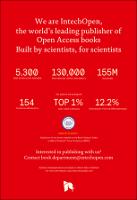Chapter The Cross Talk among Autophagy, Ubiquitination, and DNA Repair: An Overview
Author(s)
Nazio, Francesca
Cecconi, Francesco
Maiani, Emiliano
Language
EnglishAbstract
Cellular plasticity is modulated by protein posttranslational modifications, which act on most intracellular pathways. Ubiquitination is a versatile posttranslational modification (PTM) that influences protein fate, controlling their degradation or modulating their activity and subcellular localization. The ubiquitin proteasome system, UPS, and the autophagic pathway are the main degradative intracellular machineries, which rely on ubiquitination for their activation and/or the selective recycling of proteins and organelles. Recent findings indicate that the cross talk between UPS and autophagy plays a key role in controlling DNA repair pathways. Even being a cytoplasmic process, it is now clear that autophagy can directly impact on the correct activation of DNA repair. Of note, defects on autophagy are related to the impairment of homologous recombination repair and to an increase of the nonhomologous end joining repair activity. These evidences give new insights into the molecular processes underlying the DNA damage response and provide further explanation for the tumorigenesis associated with autophagy impairment. Moreover, these findings introduce new examples of synthetic lethality between autophagy and DNA repair genes and lead to the possible development of target therapies for tumors with defective autophagy.
Keywords
autophagy, DNA repair, ubiquitination, ubiquitin proteasome system, p62DOI
10.5772/intechopen.71404Publisher
InTechOpenPublisher website
https://www.intechopen.com/Publication date and place
2018Classification
Biochemistry


 Download
Download